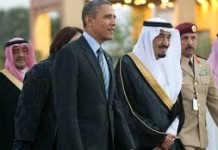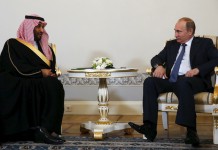Context

Two former officials of Pakistan’s premier intelligence agency, the Inter Services Intelligence (ISI), and a freelance British journalist have recently gone missing in Pakistan’s lawless North Waziristan Agency. The officers, Colonel (retired) Sultan Tarar, generally known as Imam, and Squadron Leader (retired) Khalid Khawja, are well known in the Jihadi circles for their support to the Taliban cause. In fact Colonel Imam is known as the father of Taliban due to his role in the Afghan jihad against the Soviets. They were accompanying a freelance journalist, Asad Qureshi, who was making a documentary on the Taliban and Al Qaeda. Two other unknown people accompanied them. There are indications the region is becoming active for a different reason now, in preparation for the scenarios premised on eventual US withdrawal.
Analysis

Given the state of affairs in the region, it is not surprising that the abduction and subsequent developments have many multifarious dimensions.
First, the abduction of two experienced ISI personnel, who have frequently visited the region and worked with the Taliban, shows that they perhaps miscalculated the hospitality of the militants, which may be wearing thin in view of frequent drone attacks by the CIA and the operations launched by the Pakistan military. North Waziristan, where the journalist and the ISI personnel have gone missing, is the last of the Taliban and Al Qaeda sanctuaries in Pakistan, where the Pakistan Army has not yet launched a full-fledged military operation, though technically speaking the army is present there. As the drone attacks in North Waziristan continue and the Pakistan Army hammers out the Taliban hideouts in neighboring tribal agencies, Al Qaeda and their allies, the Taliban, are quickly learning that their survival is now becoming trickier in the region. There is a possibility that the captors may have believed that the former intelligence agents or the journalist were working either for the ISI or the Americans on an intelligence gathering mission.
Second, the demand put in by the captors to release senior Afghan Taliban commanders Mulla Baradar, Maulvi Abdul Kabir and Mulla Mansoor Dadullah within 10 days is significant. The most senior Afghan Taliban commander whom the captors want to be released is Mullah Baradar, the second-in-command to Mullah Omar. His arrest, in a joint CIA-ISI operation, was widely hailed in the western media. While holding former ISI personnel captive could be seen as revenge for the arrest of Taliban commanders by the Pakistan agency, at the same time, it can also be surmised that the arrest of senior commanders have had a major impact on the Taliban, disrupting their operational strategies and lowering their morale.
Third, as CIA has taken out the top leadership of the Tehrik-e-Taliban Pakistan, including Baitullah Mehsud and subsequently Hakimullah, the chances that the terrorist organization may have split into several smaller factions, each operating independently with its own agenda, are very much present. Interestingly, the Afghan Taliban have expressed ignorance about the video clip of the captives, which was released after the abduction, and told the Afghan Islamic Press that they had no link to the event taking place across the border and also have no information in this regard. Nevertheless, for some strategists exploiting the divisions among the groups could be beneficial.
These former ISI officials, with their history of links and repute with the Taliban, are Pakistani assets that others perhaps aspire to, in the present geo-political situation of the Af-Pak theater. If these potential interlocutors of Pakistan start going missing, the county’s influence to shape the future outcomes once US leaves will be severely dented. PoliTact has previously pointed out that each strategic player at this stage of the Af-Pak war aims to limit the leverages that the other players hold.
There were reports that before his arrest, some western officials were pursuing contacts with Mullah Bradar independent of Pakistan and that this was the real cause of his arrest. A UN official had also criticized the role of Pakistan at the time. Now, the abduction of former influential ISI actors could be a get-even act, and quite possibly a message that Pakistan will not be permitted to find a solution to the quagmire on its own.
Fourth, according to reports, the hostage takers come from the largest Pakistani province, the Punjab, and are not native Pakhtuns. Many of the Punjabi Taliban, unlike the Pakhtun Taliban, have a sectarian background. Moreover, as criminal elements have merged into the Taliban, kidnappings for ransom have increased in the Taliban dominated areas. The demand for US$10 million for journalist Asad Qureshi confirms the fact that money is also one of the major factors in the kidnapping.
While neither of the ex-ISI officers may be very popular in anti-Jihadi circles, Khalid Khawaja, who has served Pakistan Air Force for 18 years, is nevertheless a highly controversial figure. He claims he had arranged five meetings between former Pakistani prime minister Nawaz Sharif and the Al Qaeda chief, Osama bin Laden, in the Nineties, a charge debunked by the Pakistan Muslim League which Nawaz leads. Khawaja is also active on human rights issues and has been pursuing the case of missing persons, allegedly detained by Pakistani security agencies for being involved in terrorism. He has recently been defending five American terror suspects held in Sargodha in the Punjab province and is well known for filing frivolous court cases against the government.
Whatever the case may be, the abductions show the area remains one of the most dangerous places in the world, even for those who support the Taliban cause. If you have not taken up arms for the Taliban or against the Taliban, you may be regarded as a freelancer or an agent in the war zone. And that certainly is not a good idea. It also indicates how deeply infested FATA has become with agents and proxies representing all global and regional powers protecting their respective interests.
Tell Us What You Think



